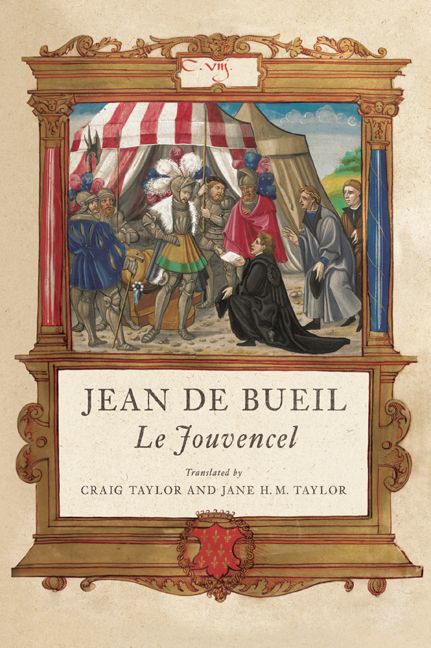Part II
Published online by Cambridge University Press: 06 October 2020
Summary
Prologue [171] The first part of this book has dealt with Jouvencel's personal conduct, and has left aside his conduct when in command of others; now we turn to the second part which will deal with his economic conduct, the middle category that allowed him to rise from low estate to high. This part will be longer and more complex than the first, and this for two main reasons.
The first concerns the natural energy with which all men, and even beasts, pursue their advantage and reach their highest goals. As the Philosopher says in his Of the Generation and Corruption of Natural Things, even the dumb beasts understand what is useful to them, and what is harmful, so that they need little instruction. But when it comes to command, and to having government over others, there is great need of education and reason. To govern requires a clear understanding of those governed, be they men or beasts. This is why, once his chicks hatch, the crow recognizes that they are different from him in that as yet they have no feathers, and are not black as he is – so he fears they aren't his, and abandons them until eight days later, leaving them with no food other than [172] thin air. But once their plumage comes in and he can see their parentage, he recognizes them for his own and is more solicitous of them than are other birds of their own fledglings. Just so, anyone who has authority and command over others, be they men or dumb beasts, should ensure that they understand their charges before taking command. This is something that is best proved by the individual in charge of, and therefore communicating with, a company of those of lesser, or comparable, rank to himself. And in such a case, it is common to see someone of low estate, but possessing good sense and aptitude, rise to a state of perfection. For they communicate with ease with those of their own rank, and can learn to understand the condition of others; by this means they come to understand the nature of command and are appointed, or elected, to such a role. This was the way in which, in the ancient world, for the public good, the Romans appointed governors and administrators who were chosen by election.
- Type
- Chapter
- Information
- Jean de Bueil: Le Jouvencel , pp. 51 - 202Publisher: Boydell & BrewerPrint publication year: 2020



